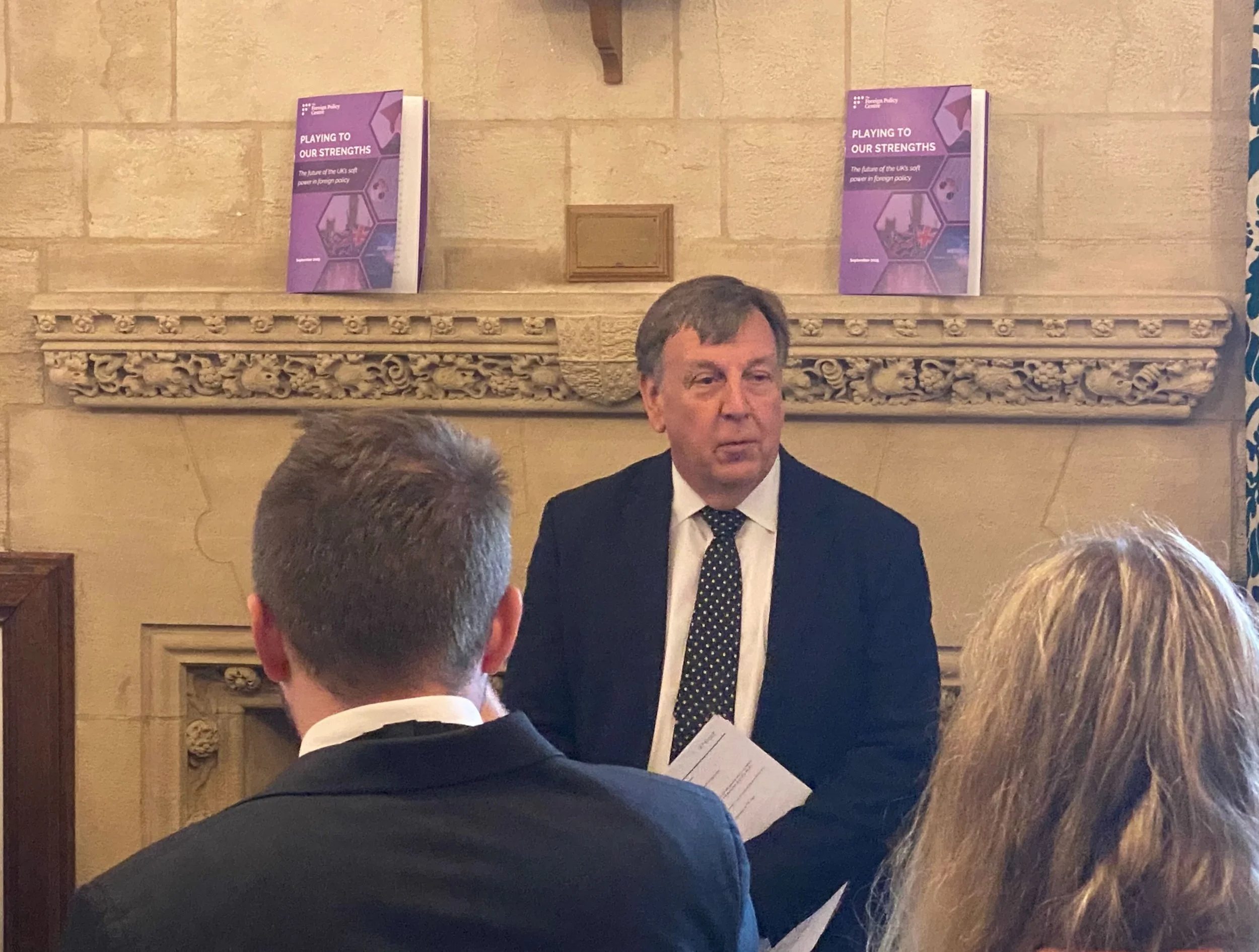How Trust is Critical for Investors in Private Capital Markets
A couple of days ago, I came across a great article in The Financial Times that highlighted how ‘private equity firms [were] struggling to raise money despite offering unprecedented enticements to attract new investor cash, underscoring a sector-wide contraction that is denting the profitability of the industry.’ This was not the first article that I’ve read on this subject, but, given how PE firms are such a dominant force in the GP ecosystem, it caught my attention. So, if PE firms are having issues fundraising, what is the cause and what will be the impact further down the capital chain?
Private equity firms are finding it difficult to raise money, despite offering unprecedented enticements to attract new investor capital. This struggle underscores a sector-wide contraction that is denting the industry's profitability. This fundraising slump signals a broader shift in the private capital landscape, where once-dominant performance metrics no longer guarantee access to capital. In this new environment,
Trust, reputation, and perception have emerged as the ultimate currency, one that cannot be manufactured overnight or easily repaired once it is damaged.
The Private Capital Landscape in a State of Flux
Over the past 14 months, the private equity sector has found itself operating in a markedly different landscape. Once buoyed by cheap money from low interest rates, rising valuations, and a seemingly insatiable appetite from Limited Partners (LPs), the market has shifted into a lower gear, and according to Adams Street Partners, global private equity funds raised just $746.5 billion in 2024, an 18% drop from the previous year and the lowest in four years. Meanwhile, Bain & Company reports that buyout fundraising alone declined by 23% in the same period, primarily driven by subdued investor sentiment in North America. The private equity industry is facing a reckoning, with fundraising plummeting to $592 billion in the 12 months ending June 2025—the lowest level in seven years.
Amid this downturn, distributions to investors have collapsed to just 11% of assets, marking the weakest performance since the 2009 financial crisis. Even with General Partners (GPs) slashing fees and offering unprecedented incentives, LPs remain reluctant to commit fresh capital. This caution is a clear indication of a fundamental shift, driven by a lack of confidence stemming from both macroeconomic and geopolitical issues.
The Indispensable Role of Trust, Perception, and Reputation
In the world of private capital, trust is the foundation. LPs trust GPs to act in their best interest, and GPs trust LPs to be long-term partners. Reputation is what makes or breaks this dynamic. Even in private and discreet networks, reputation is a key commodity that can both unlock capital and deals.
In today's digital world, where information travels fast, a single issue in one jurisdiction can affect a GP's ability to raise future funds or co-invest in other regions. Reputation is now a strategic asset that can either attract capital or repel it.
For both LPs and GPs, reputational risks are significant and can include:
Failure to deliver returns or manage the downside
Governance breakdowns
Negative media coverage or activist scrutiny
Regulatory compliance breaches
Misalignment with ESG (Environmental, Social, and Governance) or DEI (Diversity, Equity, and Inclusion) values
A New Architecture of Trust: The Rise of Sovereign Wealth Funds and Family Offices
The transformation in private markets is particularly evident in how sovereign wealth funds (SWFs) and single and multi-family offices evaluate investment opportunities. These institutions, which hold trillions in assets under management, have moved beyond simplistic return calculations to assess the reputational infrastructure of their GP partners and the ventures they invest in.
Sovereign Wealth Funds as Strategic Financiers
SWFs are not just passive capital providers; they are strategic global financiers that view reputation as an integral part of risk management. Their investment decisions increasingly hinge on questions that extend far beyond IRR projections: Can a GP navigate regulatory scrutiny? Will their governance withstand public examination? Does their leadership demonstrate the institutional maturity required for a long-term partnership?
Saudi Arabia's Public Investment Fund (PIF) and the Abu Dhabi Investment Authority (ADIA) exemplify this shift. According to its 2024 annual report, PIF has approximately $913 billion in assets under management. ADIA has approximately $1.057 trillion in assets. The emergence of Saudi Arabia and Abu Dhabi as global financial hubs illustrates how reputation and capital flow intersect in practice. When GPs partner with Emirati institutions, it signals to other investors that they have passed a sophisticated due diligence process. The credibility that comes from co-investing alongside an institution like ADIA or Mubadala validates a GP's strategy in ways that traditional marketing cannot.
The ‘Governance Premium’ of Singapore
Singapore's GIC and Temasek Holdings, with combined assets exceeding $1.4 trillion, provide another example of the role of reputation. These institutions have built a reputation for disciplined, long-term investing. They are willing to pay a governance premium, a willingness to pay higher fees and even accept lower returns, in exchange for working with GPs that demonstrate exceptional governance standards.
GIC's selectivity has created a tier system in private equity, where access to premier LPs becomes a competitive advantage. When these established LPs back a manager, they are putting their own credibility on the line, making them extraordinarily careful about due diligence.
The Growing Influence of Family Offices
The rising influence of family offices has also accelerated the importance of reputation. These investors, who now represent more than $4 trillion in investible assets globally, often make decisions based on relationship capital and trust signals that can be difficult to quantify. Unlike institutional investors with standardised processes, family offices typically prioritise the alignment of values and long-term relationships over purely financial metrics. They invest in people, not just strategies, and need to believe that their GP partners will make sound decisions even when they are not in the room. This emphasis on personal relationships creates a need for a level of trust that goes well beyond reviewing historical performance data.
Strategic Communications: A Board-Level Imperative
Given the paramount importance of trust, perception, and reputation, strategic communications is a strategic function, not just a tactical one. It is about protecting fundraising credibility, managing stakeholder perception, and supporting crisis navigation. It also enhances transparency and trust, enabling growth into new markets or sectors.
In many cases, especially when navigating geopolitical and geoeconomic sensitivities or cross-border investor dynamics, external advice adds objectivity and experience. While privacy is critical, the private nature of LP-GP relationships doesn't protect them from scrutiny. Pension fund beneficiaries read headlines. Sovereign investors are held to public standards. Even private family offices are increasingly expected to show purpose, not just profit. GPs must market themselves privately and publicly to raise their next fund, recruit top talent, and exit companies in competitive environments. Perception, trust, and reputation are no longer optional soft skills; they are board-level imperatives.
5 Questions Decision-Makers Need to Consider
Decision-makers within both LP and GP organisations must proactively manage their reputation. Here are five key questions you need to consider:
Are our values aligned with those of our stakeholders? This means understanding the priorities of LPs, portfolio companies, and employees, and ensuring the firm's actions consistently reflect its stated values.
Are we communicating performance, governance, and ESG clearly and consistently? Transparency builds trust, and in an environment where LPs are increasingly focused on operational due diligence and risk management, clear communication is non-negotiable.
Do we understand how internal decisions may be perceived externally? Every major decision, from acquiring a new portfolio company to making a senior personnel change, has a reputational impact that must be considered.
Have we identified and mapped our reputational risks and put mitigation plans in place? Proactively identifying potential risks and having a clear crisis communication plan is essential to protecting the firm's reputation and maintaining LP confidence.
Do we have access to experienced, discreet advisers who understand strategic communications, not just PR? A professional advisor can provide the objectivity and experience needed to navigate complex reputational challenges, from regulatory scrutiny to geopolitical sensitivities.
The New Mandate for Private Capital
The transformation of reputation from a secondary consideration to a primary factor in private markets reflects broader changes in the global financial system toward greater transparency, accountability, and stakeholder capitalism. Even in the era of AI and automation, the industry remains fundamentally human and relationship-driven, with personal relationships between GPs and LPs continuing to play a crucial role in investment decisions, especially during challenging market conditions.
For an industry built on relationships and trust, adapting to this new reality is critical for long-term survival and success.
GPs and LPs that view reputation as a strategic asset will be best positioned to attract or leverage capital, recruit talent, and thrive in an increasingly complex and interconnected world.








